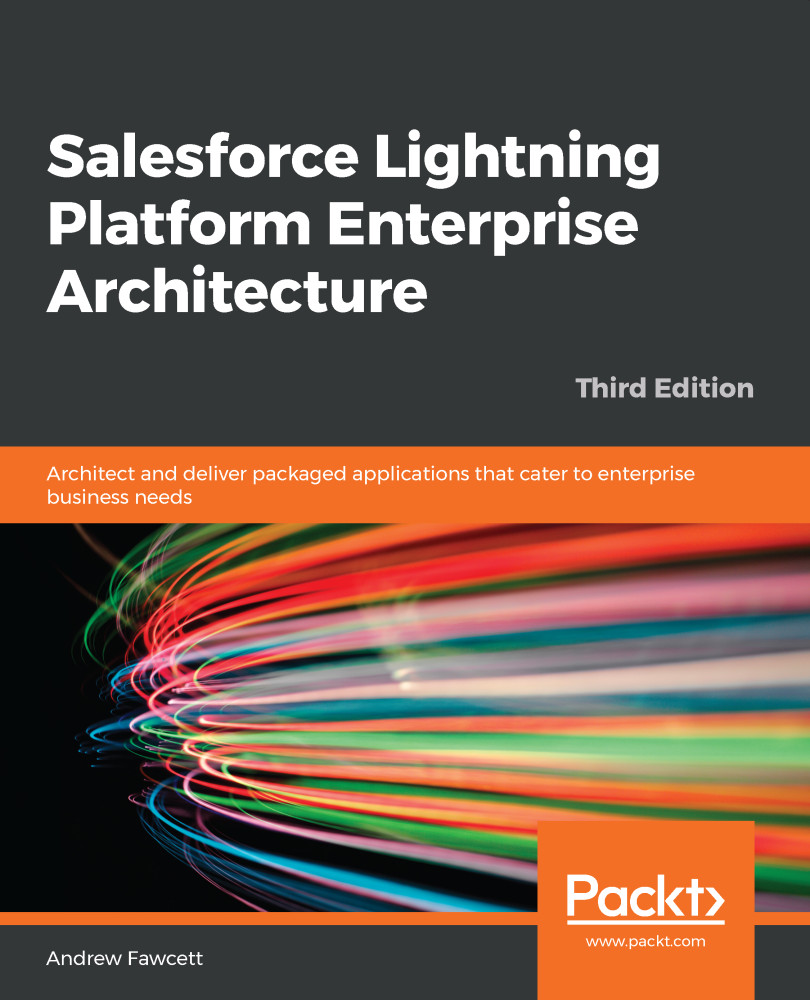In this chapter, we have reviewed enterprise application integration and extensibility requirements through the eyes of a persona known as Developer X. By using this persona, much like your UI designs, you can ensure that your API tracks real use cases and requirements from the representative and, ideally, actual users of it.
When defining your API strategy, keep in mind the benefits of the standard Salesforce APIs, how to evangelize them, and the significant investment Salesforce puts into them in order to provide access to the information stored in your Custom Objects. We have also seen that platform tools such as Lightning App Builder, Lightning Process Builder, and Flow can be extended with embedded functionality from your package that can be accessed without the need for code. Platform events are also worth considering to provide an asynchronous loosely API to allow...


